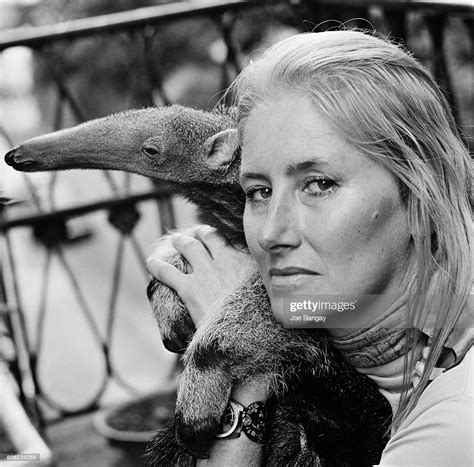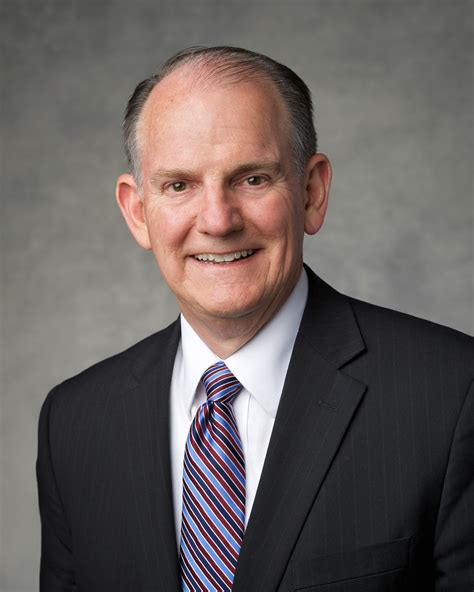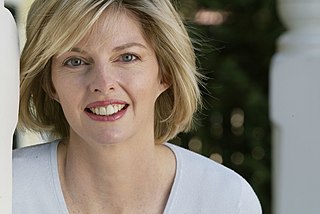A Quote by Joyce Meyer
We don't think there's
something wrong with one-
year-old children because they
can't walk perfectly. They fall
down frequently, but we pick
them up, love them, bandage
them if necessary, and keep
working with them. Surely our
heavenly Father can do even
more for us than we do for our
children.
Related Quotes
It is our genetic nature as a species to believe as young children that our parents and elders are right. We watch them to see what's what. Later on we can judge for ourselves and rebel if need be, but when we're just months old, or a year or two, and a parent looks at us with impatience, or disgust, or disdain, or just leaves us there to cry and doesn't answer us even though we're longing to be embraced and nurtured, we assume that something must be wrong with us. Unfortunately, at that age it's impossible to think there might be something wrong with them.
Let us be different in our homes. Let us realize that along with food, shelter, and clothing, we have another obligation to our children, and that is to affirm their "rightness." The whole world will tell them what's wrong with them--out loud and often. Our job is to let our children know what's right about them.
I really, really love children and I think probably among children is when I feel mostly berated. It's not like I feel like oh, there's some children here. I have to tone it down. I go nuts with children especially when I ain't got none. So when I'm round my mates' children, I jest them kids up first. I swear at them, I get more worked up, I say crazy stuff to them, fill their heads with nonsense and then I leave them.
To you who are parents, I say, show love to your children. You know you love them, but make certain they know it as well. They are so precious. Let them know. Call upon our Heavenly Father for help as you care for their needs each day and as you deal with the challenges which inevitably come with parenthood. You need more than your own wisdom in rearing them.
We can surely no longer pretend that our children are growing up into a peaceful, secure, and civilized world. We've come to the point where it's irresponsible to try to protect them from the irrational world they will have to live in when they grow up. The children themselves haven't yet isolated themselves by selfishness and indifference; they do not fall easily into the error of despair; they are considerably braver than most grownups. Our responsibility to them is not to pretend that if we don't look, evil will go away, but to give them weapons against it.
Our Heavenly Father, who loves us completely and perfectly, permits us to have experiences that will allow us to develop the traits and attributes we need to become more and more Christlike. . . . As we understand this doctrine, we gain greater assurance of our Father's love. We will each face times of difficulty, and the question is not when we will face them but how we will face them.
Everyone who comes in is just amazed that our children do not have the animosity, the hatred, because these children are into it. You know, once you learn to like yourself, then you don't see this black-white bit. I still say that a good basic education is the only thing. I feel guilty sometimes because I don't think Jesus Christ could get any more accolades than I do when I walk through that classroom, even from the children I do not teach. They know that I love them, but I am forever telling them, "Get into that seat so you can have choices in this world."
Making fiction for children, making books for children, isn't something you do for money. It's something you do because what children read and learn and see and take in changes them and forms them, and they make the future. They make the world we're going to wind up in, the world that will be here when we're gone. Which sounds preachy (and is more than you need for a quotebyte) but it's true. I want to tell kids important things, and I want them to love stories and love reading and love finding things out. I want them to be brave and wise. So I write for them.
So long as we insist upon defining our identities only in terms of our work, so long as we try to blind ourselves to the needs of our children and harden our hearts against them, we will continue to feel torn, dissatisfied, and exhausted…. The guilt we feel for neglecting our children is a byproduct of our love for them. It keeps us from straying too far from them, for too long. Their cry should be more compelling than the call from the office.
There’s only one thing we can be sure of, and that is the love that we have -- for our children, for our families, for each other. The warmth of a small child’s embrace -- that is true. The memories we have of them, the joy that they bring, the wonder we see through their eyes, that fierce and boundless love we feel for them, a love that takes us out of ourselves, and binds us to something larger -- we know that’s what matters. We know we’re always doing right when we’re taking care of them, when we’re teaching them well, when we’re showing acts of kindness. We don’t go wrong when we do that.
We, perhaps, have corrupted our children and our grandchildren by heedless affluence, by a lack of manliness, by giving the younger generation more money and liberty than their youth can handle, by indoctrinating them with sinister ideologies and false values, by permitting them, as young children, to indulge themselves in imprudence to superiors and defiance of duly constituted authority, by lack of prudent, swift punishment when the transgressed, by coddling and pampering them when they were children and protecting them from a very dangerous world.
































